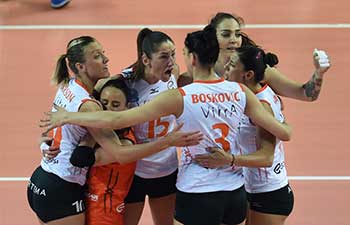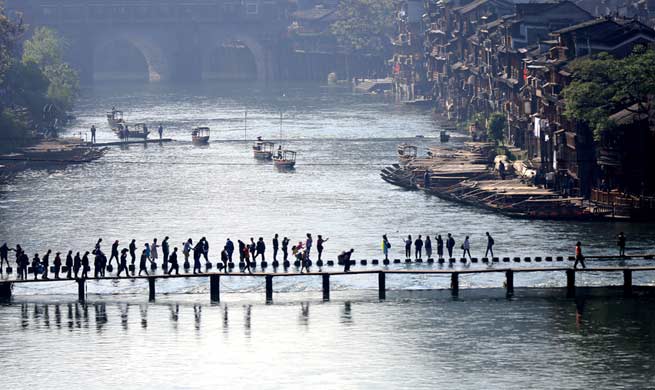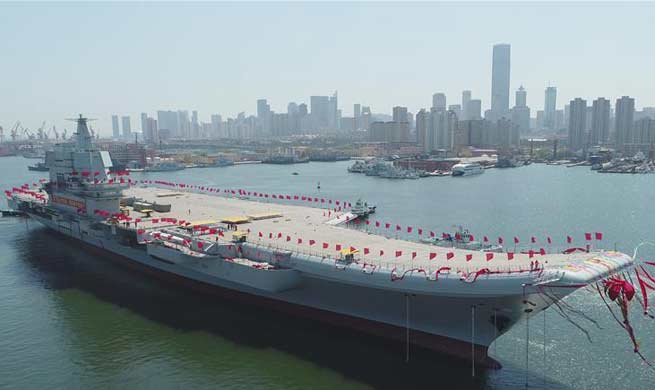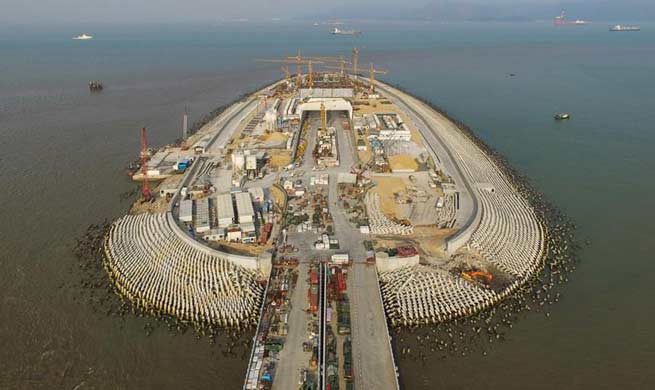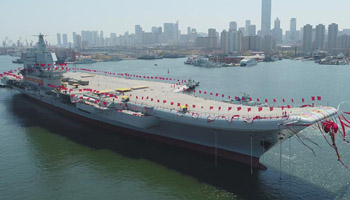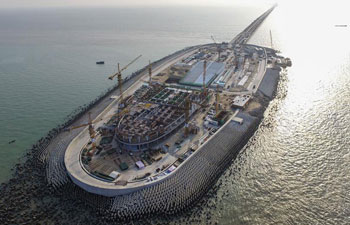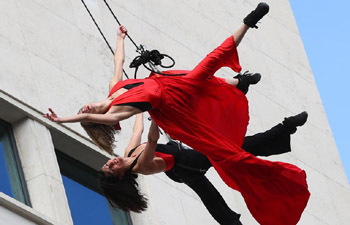MOSUL, Iraq, April 30 (Xinhua) -- Iraqi paramilitary units, known as Hashd Shaabi, pushed further in southwest of Mosul and cleared five villages from Islamic State (IS) militants on Sunday, while fierce clashes continued in the IS-held neighborhoods in the western side of Mosul, the Iraqi military said.
In the early morning hours, the Hashd Shaabi fighters advanced in three routes in northwest of the newly-freed town of Hatra, some 100 km southwest of Mosul and freed the villages which scattered in the vast rugged land that extends to the Iraqi-Syrian border, the media office of the predominantly Shiite Hashd Shaabi said in a statement.
The paramilitary fighters, backed by helicopter gunships, fought sporadic clashes against IS militants, leaving at least 20 militants killed and four car bomb destroyed along with destroying a truck carrying heavy machine gun, the statement said.
Three days ago, the paramilitary units dislodged the IS militant from their desert stronghold in the town of Hatra, which bears the same name as the nearby damaged ancient city of Hatra.
The new push of the predominantly Shiite-paramilitary units after recapturing Hatra is aimed at securing the border areas between Iraq and IS-held areas in neighboring Syria, as well as cutting off the IS supply routes in the open land between the IS-held Hawijah, which located in east of Hatra, and the IS strongholds in western Mosul.
Also in the day, the federal police and interior ministry special forces, known as Rapid Response, continued heavy forth and back battles against IS militants at the edges of the densely-populated old city center, where roughly 400,000 residents are believed to still be trapped under IS rule, a security source told Xinhua on condition of anonymity.
"The battles concentrated during the day in the areas of Bab al-Toub, Bab al-Baidh, Qadheeb al-Ban and Bab al-Jadid, in addition to the area at the bank of the Tigris River," the source said.
Iraqi Prime Minister Haider al-Abadi, who is also the commander-in-chief of the armed forces, announced the start of an offensive on February 19 to drive extremist militants out of the western side of Mosul, locally known as the right bank of the Tigris River which bisects the city.
Late in January, Abadi declared the liberation of Mosul's eastern side, or the left bank of Tigris, after over 100 days of fighting IS militants.
However, the western part of Mosul, with its narrow streets and heavily populated neighborhoods, appears to be a bigger challenge to the Iraqi forces.
Mosul, 400 km north of Iraqi capital Baghdad, has been under IS control since June 2014, when government forces abandoned their posts and fled, enabling IS militants to take control of parts of Iraq's northern and western regions.








